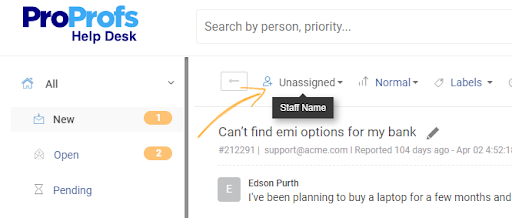Data is the new oil. It is essential to the running of a business, and every company wants more of it. The influence of data collection can be seen in our day-to-day lives. Be it your ad recommendations, shopping recommendations, and so on. But just how much data is too much data in the hands of a company?
To learn this, we got in touch with reputed consultant and social media expert Shonali Burke. She is the CEO and founding member of Shonali Burke Consulting Inc. and has over 20 years of experience in branding and marketing. Here’s what she had to say on the Personalization vs. Privacy debate.
#Q1 How Has the Privacy Paradox Changed the Way Marketers Approach Personalization?
I think the privacy paradox is starting to change the way marketers think about personalization, but I’m not sure best practice adoption is widespread yet.
I love data; you can do amazing things if you use it wisely, and I’ve been an advocate for making data-driven decisions for a long time. Particularly as AI is becoming more and more widespread, the ability to analyze and direct data is going to become more critical in business.
But what we also need to remember is that masses of data points are multiple connection points between us, and people like us and too often, marketers forget that.
So running after, and amassing as much data as possible, without making sure we’re keeping customers’ interests at heart – which should be our guiding light, always – is about the worst thing we can do.
#Q2 How Can Companies Strike the Right Balance Between Offering Personalized Services and Getting Too Close for Comfort?
I don’t think people have started taking their right to privacy less seriously.
If anything, what I see among my non-marketer friends is that they are even more particular about what they share online, who they share it with, and so on.
And when they do share, they do so with companies and brands they trust.
So I think the key is to be as transparent as possible. Be absolutely clear with your customers as to what kind of personal data is being asked for, and why. If you’re not up front with them, why should they trust you with their attention, time, and data?
And then make your privacy policy easy to find, read, and understand. I think companies are starting to do a better job of this – e.g., Ticketmaster, whose privacy policy even includes a video – but many still have a long way to go.
#Q3 What Kind of Data Should a Company Acquire for Personalization?
Only what is absolutely necessary.
At the end of the day, a company’s goal should be to make its customers’ lives better via the delivery of its product or service.
What data will help it do that? That’s the only data it really needs.
#Q4 Companies CAN Collect All Kinds of Data, but Do Consumers and Companies Need to Come to an Understanding of Whether They SHOULD Collect All Data?
I have yet to come across the organization that needs to collect “all” data.
So I think this comes back to companies being very clear with customers about which data they actually need, and why.
Will they use it to innovate new products and services, improve the quality of their offering, or provide exceptional content?
Or are they asking for it in order to share it further with marketing partners? (which is often unavoidable, but if it seems to be the primary reason, then it feels a bit icky)
I do think the onus is on the company to initiate this, as they are the ones asking customers to give them their information.
FREE. All Features. FOREVER!
Try our Forever FREE account with all premium features!
#Q5 How Do You Get the Customer to Trust You with All of Their Data?
You’ve used the keyword here: trust. Trust is paramount to the customer trusting you with the relevant (not “all”) data.
As I said earlier, be very transparent about why you need it, what you’re going to do with it, and how, at any point, customers can limit the usage of their data.
#Q6 What Major Changes Have You Noticed in Customer Behavior Ever Since the Breakout of Cambridge Analytica and Similar Scandals?
I think there is, in general, greater awareness of the fact that we are all, in essence, bundles of data points for companies and it’s an uncomfortable feeling.
But when personalization works, then it does make life easier. And I think more and more people are becoming accepting of, and ok with this.
As I said earlier, I also see greater awareness of what we’re sharing online, as well as our fundamental human right to be treated with respect…not as if we’re just a bundle of data points.
So I think people are speaking up more when they feel their privacy, or rights, are being infringed upon. And that’s a good thing.
#Q7 Has There Been a Significant Change in Customer View on Privacy Post the GDPR Norms?
I think the arrival of GDPR was a boon to the industry. Because even though it regulates data privacy across Europe, it forced a lot of companies in the U.S. and elsewhere to look at their own privacy practices, and be more transparent with customers.
And it’s made customers more aware of privacy practices (or the lack thereof). So even if they’re not experts, they at least know the right questions to ask, and don’t feel hesitant to do so.
Key Takeaways
- Data collection should only be centered around the interests of the customer.
- Transparency is the key to maintaining the balance between personalization and privacy.
- A company’s goal should be to make its customers’ lives better via the delivery of its product or service.
- Trust is paramount to the customer trusting you with the relevant (not “all”) data.
- Companies need to remember that customers are not just data points, but are humans who have the right to privacy. Companies need to work towards ensuring that this fundamental human right is not exploited in any way.
 Tips
Tips
We’d love to hear your tips & suggestions on this article!
FREE. All Features. FOREVER!
Try our Forever FREE account with all premium features!

 We'd love your feedback!
We'd love your feedback! Thanks for your feedback!
Thanks for your feedback!





